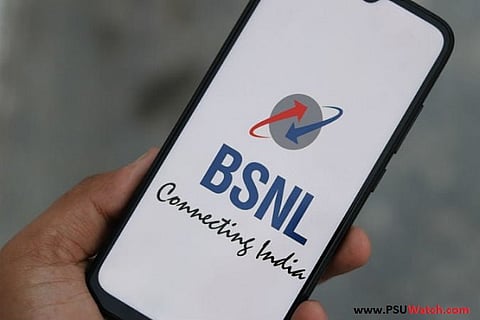
- News Updates
- PSU Watch
- Defence News
- Policy Watch
- हिन्दी न्यूज़
- Jobs Watch
- States News
- Event News

New Delhi: The spanner thrown by TEPC (Telecom Equipment and Services Export Promotion Council) in the 4G tender floated by BSNL (Bharat Sanchar Nigam Limited) seems to have landed the state-run telco in a soup. And it could now be asked by the government to tweak the tender conditions, thereby further delaying the crucial rollout of 4G services by BSNL, sources aware of the matter told PSU Watch. The PMO (Prime Minister's Office) had appointed an expert committee to look into the issues raised by TEPC in its letter to the DPIIT (Department of Promotion of Industry and Internal Trade) and the committee has recommended that BSNL should procure a percentage of 4G equipment from indigenous manufacturers, sources said.
A source aware of the matter said, "The PMO had formed an expert committee which is called the Empowered Technical Group. It consists of scientists, technocrats from DRDO, IITs etc. The expert committee has already submitted its report to the PMO." In the report, the committee has made two recommendations, he added. "One is that indigenous manufacturers should be supported. At least 20 percent of the equipment are to be purchased (by BSNL) from indigenous manufacturers. And secondly, BSNL should be provided financial support (by the government) for its 4G network rollout," another source said.
"The government is likely to reject the second recommendation, saying that we have given the 4G spectrum to BSNL free of cost, so there is no question of providing any more financial support. However, if the 20 percent procurement is mandated, it may create problems because it will mean that BSNL will have to re-work its tender, thereby delaying the whole process," said the second source.
The 4G tender floated by BSNL on March 23 is the first tender floated by the company since the government shelved a plan to disinvest the state-run company and decided to invest Rs 70,000 crore in its revival. BSNL is four years behind its competitors in terms of offering 4G services as it had been waiting for a 4G spectrum allocation so far. If the government decides to go with the recommendation made by the expert committee, it will require BSNL to re-work its tender. And that will delay the 4G rollout further, as has been pointed out by sources.
At the heart of the matter is a clause put by BSNL in its tender: it requires bidders to have prior experience of setting up a 20 million subscriber network. Home-grown companies will be left out of the process because of this clause as they do not meet the criteria. But do other private telecom service providers procure network equipment from indigenous companies? The answer is no. In 2018, Vodafone Idea inked a Rs 14,000 crore contract with Chinese equipment makers Huawei and ZTE for new network equipment supply. And Reliance Jio purchases its network equipment from Samsung. A report published by The Economic Times said that telcos in India typically deploy around $5-6 billion of imported network equipment annually in mobile networks.
So then, why is BSNL being held responsible for procuring network equipment from indigenous manufacturers? According to the TEPC, BSNL should be made to bear the burden of procurement under Make in India because it is a state-run company. However, in a letter to the PM, all unions and associations at BSNL had said that the government funds are not being used for the procurement of these equipment and that the company plans to take loans from banks for the same. Therefore, BSNL cannot be mandated to purchase the equipment from indigenous manufacturers. Additionally, the government has recently announced its decision to push for procurement under Make in India for tenders up to Rs 200 crore. However, the BSNL 4G tender is worth Rs 9,000 crore. If the expert panel's recommendation is accepted by the government, it will further delay the 4G rollout by BSNL which is crucial for its revival.
